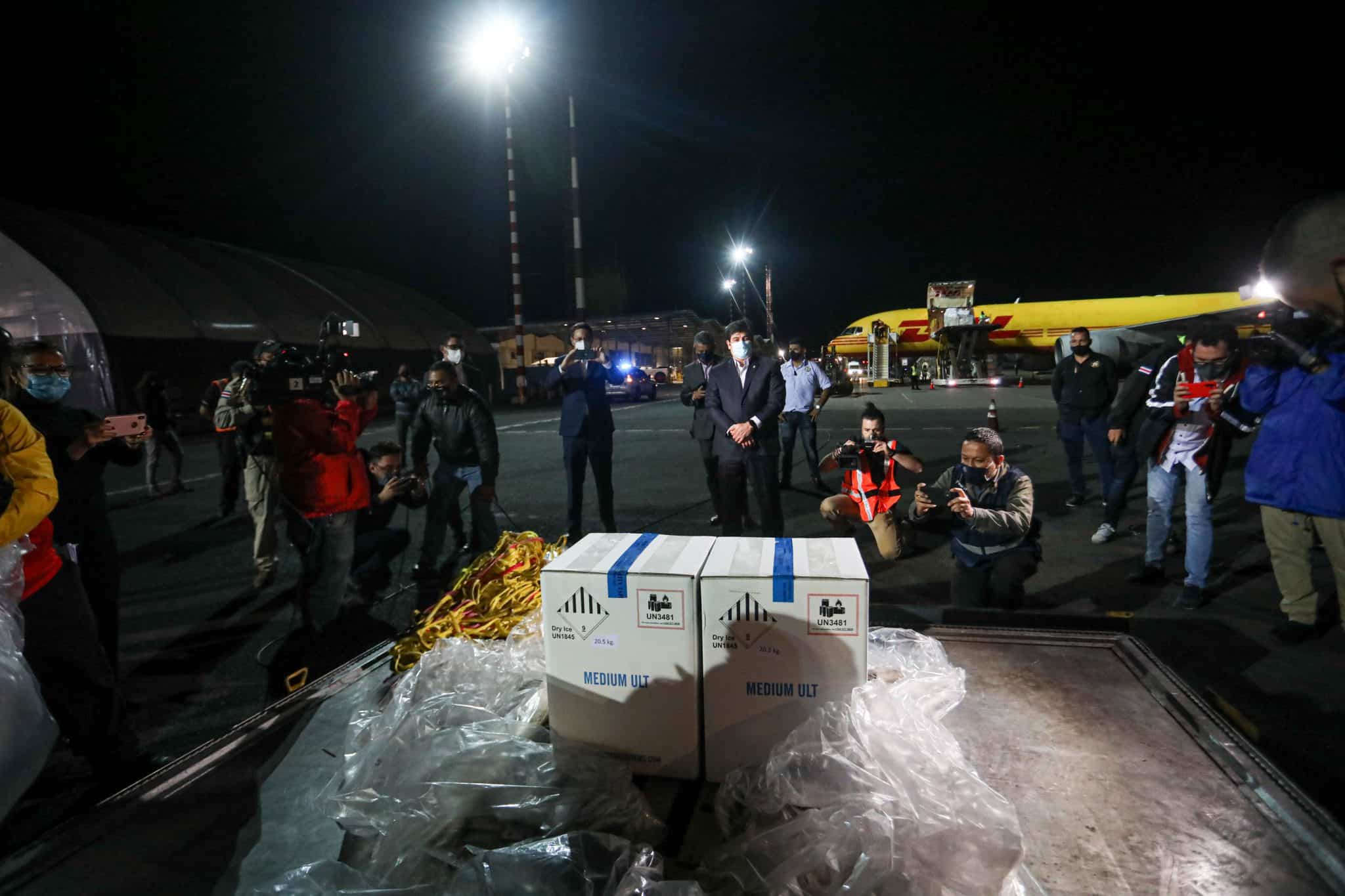The first doses of the Pfizer/BioNTech coronavirus vaccine arrived Wednesday night to Costa Rica. Health professionals and residents of elderly homes will begin receiving the vaccine today.
The batch containing 9,750 doses arrived to Juan Santamaría International Airport from Belgium just after 9:00 p.m. Watch the small ceremony below:
“The vaccine getting here today — one of the first countries in Latin America to get it — is enormous news,” said Health Minister Daniel Salas. “It’s a light in a year that has been so full of darkness.”
The National Commission of Vaccination and Epidemiology, part of the Health Ministry, has indicated the priority for vaccination will be as follows:
- Staff and residents at retirement or nursing homes.
- First responders, including health personnel.
- Costa Rica’s older population, defined here as those ages 58 and up.
- People with risk factors, including hypertension, diabetes, heart disease, respiratory illness, kidney disease and obesity, among others.
- Teachers and other staff within the Education Ministry (MEP).
- Imprisoned people and judicial staff.
- Workers for the 911 service.
- Health science students and related technicians in clinical fields.
- People ages 40-57 without any of the aforementioned risk factors but whose work puts them in contact with others. This includes laborers in agriculture, construction, service industries, etc.
President Alvarado and other high-ranking government authorities will receive the vaccine in accordance to where they fall in the above prioritization list. Costa Rica will receive about 10,000 new doses each week.
The vaccine will not be obligatory, authorities said Wednesday.
The Caja will contact individuals to schedule their two-dose coronavirus vaccine. Those who fall into priority groups should call their local EBAIS (public community health clinic) and ensure their contact information is current.
Costa Rica and Pfizer/BioNTech have an agreement for 3 million doses of the vaccine, enough for 1.5 million people. The Central American country also has a deal with AstraZeneca and is a member of the COVAX facility.
Costa Rica hopes to vaccinate 3 million people by the end of 2021. This would cover 80% of the country’s adult population, including everyone with known risk factors.

